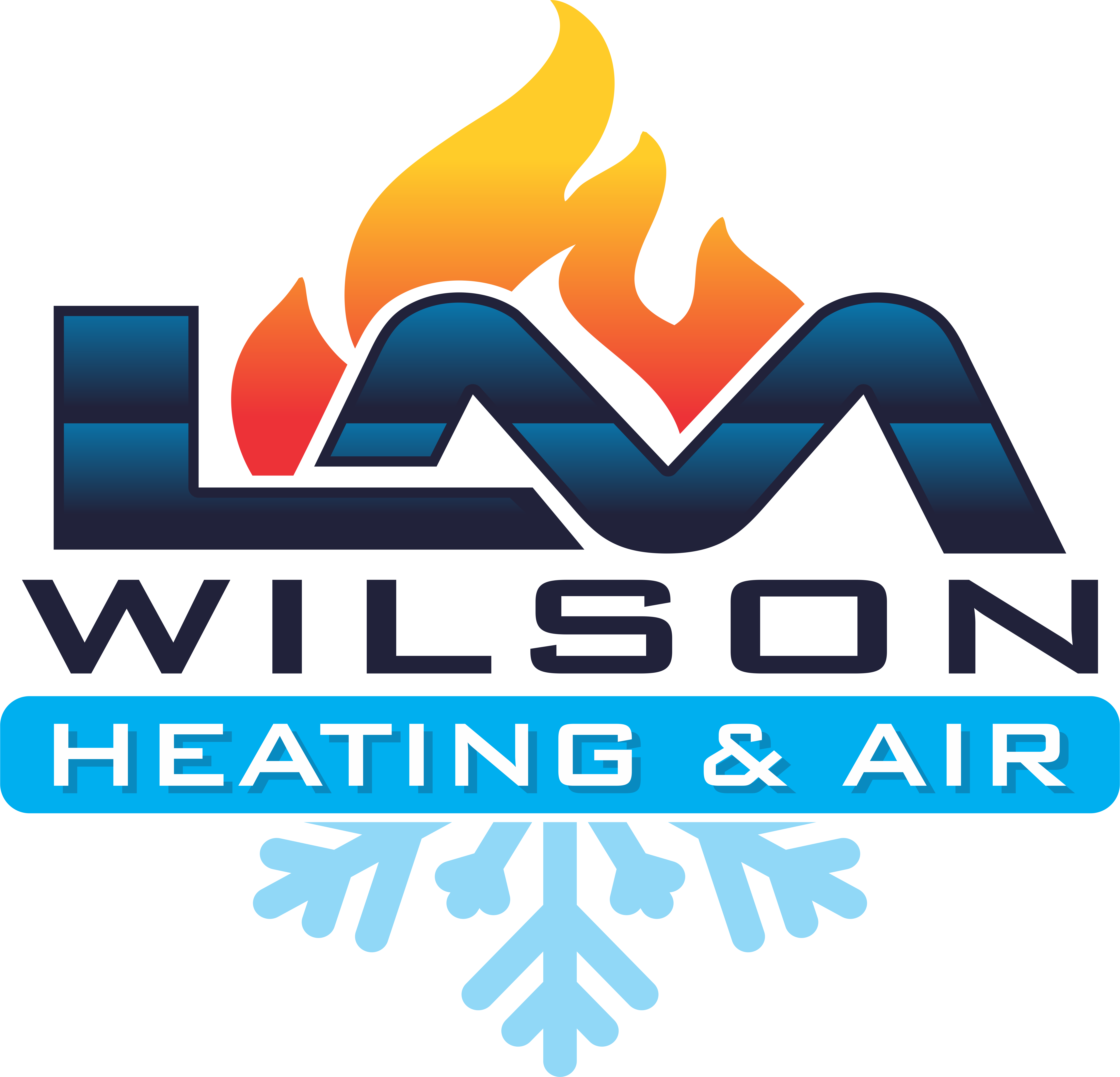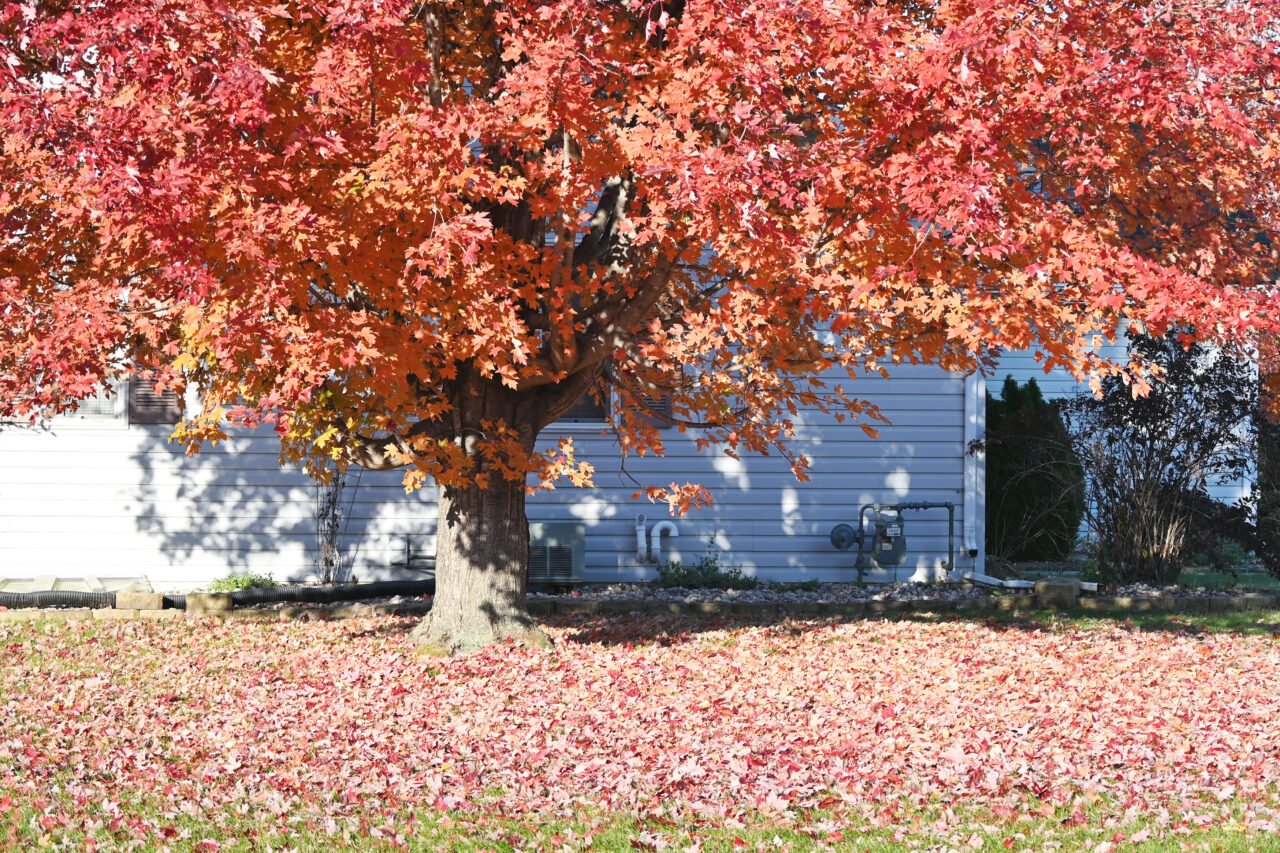As the crisp autumn air descends upon North Carolina, it’s time to ensure that your HVAC system is ready to tackle the challenges of the changing seasons. Fall brings its own set of unique issues that can affect your HVAC system’s efficiency. In this blog, we’ll explore some common HVAC problems in North Carolina during the fall and provide practical solutions to keep your system running smoothly.
The Top 10 Most Common HVAC Problems in Fall
Clogged Air Filters: One of the most common issues homeowners face in the fall is clogged air filters. As the weather cools, your HVAC system works harder to maintain a comfortable temperature, and if the filters are clogged with dust and debris, it can lead to reduced airflow and increased strain on the system.
Solution: Regularly check and replace air filters. During the fall, when leaves and allergens are abundant, it’s advisable to inspect and change filters monthly. This simple maintenance task can significantly improve your HVAC system’s efficiency.
Thermostat Malfunctions: Fluctuating temperatures during fall can confuse your thermostat, leading to inaccurate temperature readings or malfunctions. This can result in discomfort and higher energy bills.
Solution: Calibrate or upgrade your thermostat. Ensure that your thermostat is placed away from heat sources and direct sunlight. If you notice persistent inaccuracies, consider upgrading to a programmable or smart thermostat for better temperature control and energy efficiency.
Leaky Ducts: Leaky ducts are a common issue that can compromise your HVAC system’s efficiency. Over time, ductwork can develop leaks or gaps, allowing conditioned air to escape and letting unconditioned air in.
Solution: Schedule a professional duct inspection. HVAC professionals can identify and seal any leaks in your ductwork, ensuring that your system delivers conditioned air efficiently and keeps your home comfortable.
Inadequate Insulation: Fall is the ideal time to check your home’s insulation. Poor insulation can lead to heat loss, making your HVAC system work harder to compensate.
Solution: Assess and improve insulation. Check for drafts, and consider adding insulation where needed. Proper insulation not only reduces the workload on your HVAC system but also helps lower energy bills.
Furnace or Heat Pump Issues: As temperatures drop, the demand for heating increases. This puts extra pressure on your furnace or heat pump, making them susceptible to malfunctions.
Solution: Schedule a professional inspection. Regular maintenance is crucial to identify and address issues before they escalate. A professional technician can ensure that your heating system is in optimal condition for the colder months ahead.
Outdoor Unit Blockages: The outdoor unit of your HVAC system can easily become blocked by fallen leaves, debris, or even overgrown vegetation during the fall.
Solution: Keep the outdoor unit clear. Regularly remove debris, leaves, and any obstructions around the outdoor unit. This allows for proper airflow and prevents the system from overworking.
Humidity Imbalance: Fall weather in North Carolina can be unpredictable, leading to fluctuations in humidity levels. Imbalanced humidity can affect indoor air quality and strain your HVAC system.
Solution: Use a humidifier or dehumidifier. Invest in a humidifier to add moisture to the air during dry spells, and use a dehumidifier when excess moisture is present. Maintaining balanced humidity levels enhances comfort and helps your HVAC system operate efficiently.
Ignition or Pilot Control Issues: Older furnaces may experience ignition or pilot control problems, especially after months of inactivity.
Solution: Schedule a professional inspection. A qualified technician can check and repair the ignition system, ensuring that your furnace starts up reliably when needed.
Lingering Summer Debris: Fall often brings remnants of summer storms, including debris and leaves that can accumulate around your HVAC system.
Solution: Clean the area around the outdoor unit. Regularly clear away leaves, branches, and any debris near the outdoor unit to prevent airflow restrictions and potential damage.
Carbon Monoxide Concerns: As heating systems are utilized more frequently in the fall, there is an increased risk of carbon monoxide leaks. This colorless, odorless gas can pose a serious health hazard.
Solution: Install carbon monoxide detectors. Ensure that your home is equipped with carbon monoxide detectors, and regularly test them to guarantee they are functioning correctly. Additionally, schedule annual inspections to detect and address any potential issues with your heating system.
In conclusion, addressing these common fall HVAC problems in North Carolina is essential to maintaining a comfortable and energy-efficient home. Regular maintenance, timely repairs, and awareness of potential issues will go a long way in ensuring that your HVAC system operates smoothly throughout the fall and beyond. If you encounter persistent problems or need professional assistance, don’t hesitate to reach out to HVAC experts like our team at LM Wilson at (336) 663-1370. Remember, a well-maintained HVAC system not only enhances comfort but also contributes to lower energy bills and a healthier indoor environment for you and your family.


